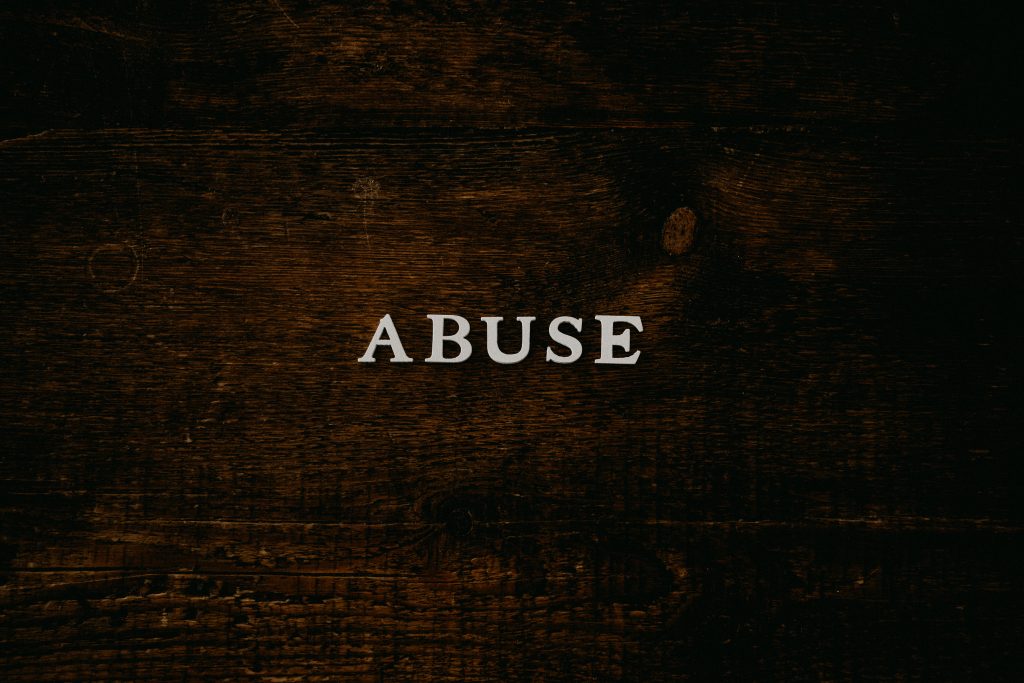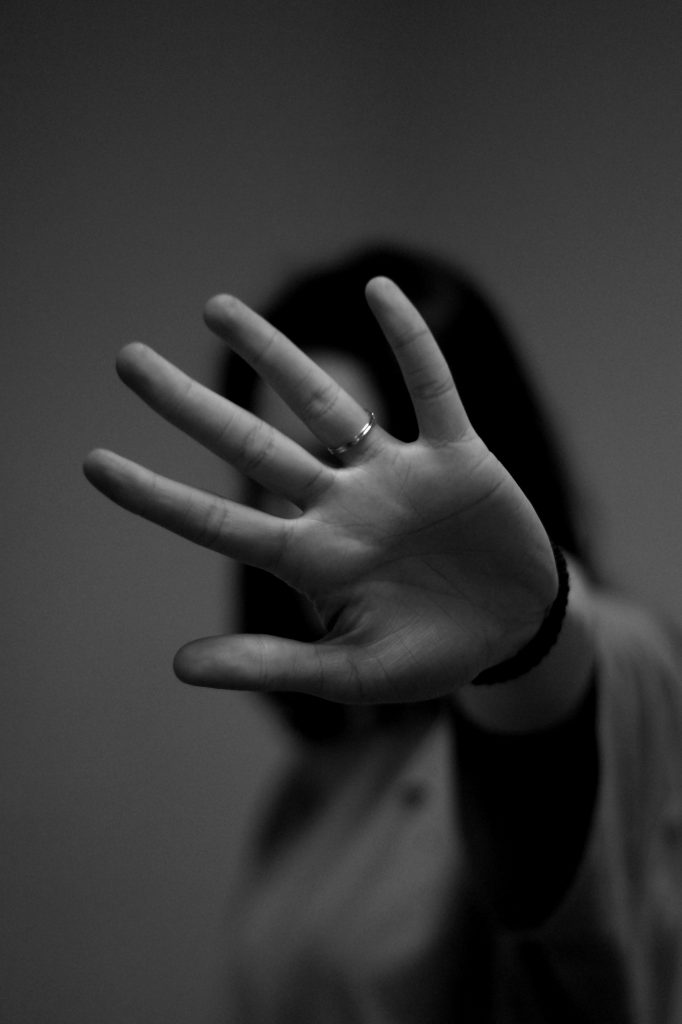Identifying The Signs Of Toxic Family Relationships
By: Pritika Mehta
Feature Articles, Health & Welfare, Psychology, Social & Youth development,

Having a family is a beautiful dream and one that a lot of people wish for. Talking about family, we remember the love, care, and memories that we cherish. However, not everyone has a similar happy experience in their life. And under the disguise of familial love, a lot of times, the signs of toxic family relationships go unnoticed.
Some were not fortunate enough to grow up in happy and healthy families. They had to grow up in a toxic house with unhealthy relationships with family members. For people like them, the ultimate dream is to forget everything about this nightmare and move away from the family.
It is quite difficult to point out toxic behaviours when it comes to family. It is instilled in your mind that family is important, and they are the only ones who care about you the most. But, sometimes, it’s the people who are close to you that cause your downfall.
Through this article, we’ll explore the different signs of toxic family relationships during childhood and adulthood and how to deal with those issues.
A lot of harmful actions are in the form of manipulation and disguised abuse. Both the manipulation and abuse lead to a series of mental health problems like anxiety disorders, depression, PTSD, eating disorders, and more.
Let’s Look at the Signs of Toxic Family Relationships in More Depth
Signs of Toxic Family Relationships in Childhood

1. Leaving important and adult responsibilities on you
As a child, being young and having fun is what should be meaningful. But if the basic responsibilities of the house were left on you, there is no time to enjoy. Parents are supposed to take care of their children the whole day or keep them under someone’s supervision if they are not available.
However, if you were often left alone by your parents, and given responsibilities like cooking, cleaning, and taking care of all the needs of your younger siblings, it’s not right. This behaviour not only shows their irresponsibility and indifference towards you but also their refusal to provide you with your basic needs. They also expect you to look at your younger sibling despite your young age.
Taking care of the younger siblings is a difficult task when you are a child on your own. And following these responsibilities, might have led to problems with your education, social life, and health. You had to become the parent to your younger siblings instead of your actual parents.
Denying you the right to the basic care and protection you are entitled to as a child is a sign of a toxic parent.
In situations like this, a supportive family would pay attention to all the care you need. For example, providing you with necessary affection, taking care of your health, ensuring that you receive education, and you have proper food, clothes, and shelter on top of your head.
2. Extreme criticism
As a way of disciplining, parents do criticize the kids, but constructively. The comments should be made after considering the child’s feelings and the severity of the actions.
Words can hurt and stay alive in an individual’s mind for years to come. It is important to watch out for how the child communicates and how the parents respond to that.
The comments made towards the child should not cross the lines of rudeness and insensitivity. They shouldn’t make the child feel worthless, unloved, or unwanted. The comment should be focused on the action rather than the child.
Examples of critical comments:
- “You’re the most irresponsible kid I have ever seen. I wish no other parent has to have such an irresponsible kid in their life.”
- “If you can’t follow this, what are you going to do in the future? Will you be able to do anything in the future!”
- “There are kids who are much better than you, you are just useless. You will never make us proud!”
A more constructive form of criticism would be:
- “I understand that you didn’t know that it was a bad thing. But now, make sure to keep in mind that it isn’t a good thing, and you will never repeat it again.”
- “It’s difficult in the beginning, but you are still learning. So, take it easy and work hard. Don’t lose hope.”
- “You are doing a good job, but you need to work even harder. If you work harder, you’ll achieve better things”
Signs of Toxic Family Relationships in Adulthood

1. Feeling controlled or suffocated
Everyone wishes to step out of the house once in a while, but feeling suffocated all the time while staying at home is not a good sign. One of the traits of a toxic family is that they will try to control you and manipulate you into staying by their side.
They will try to control different aspects of your life and interfere with your decisions despite you being a capable adult now. The family has a right to give their opinion about your life and decisions, but they don’t have the right to completely take over those decisions for you.
Even if they don’t agree with you on some things, it is normal, but they shouldn’t hold a grudge against you and completely start ignoring you. They should still show their support and love towards you.
They may try to manipulate your actions by claiming that if you don’t make certain decisions according to their wishes, they won’t love you anymore. It can be either directly or indirectly phrased by the family members.
2. You don’t have a chance to grow individually
Moving ahead in life and achieving things in your career path is an important part of your life. It is only after you grow individually, you establish your own identity and find yourself and your place in this world.
But, in some cases, families might see this individual identity as a threat to their family’s way of life. For example, if you choose a career path that you were interested in, and the family is not happy with the decision, they will revolt against the decision. They will start questioning your decisions but then move on to question your abilities. It leads to self-esteem issues, and you start questioning everything you have done till now.
A family should help you pave your way into the future support you in your growth, and not stop you from growing.
3. Issues with boundaries and privacy
One of the signs of toxic family relationships is the blurring of the lines of boundaries. There is no privacy for you in the family. Because everyone is involved or aware of what is going on in your life.
Behaviour like going through your phone, diaries, or talking to your friends behind your back are signs of toxic people. Trying to be a part of your life is different and intruding on your life and taking over completely are two different things.
A healthy amount of space is necessary for everyone. You need a little freedom to be yourself and have relationships outside the family.
4. Negative emotions for family
A family is a symbol of love, warmth, and peace; for normal relationships. However, as one of the signs of toxic family relationships, one of the emotions that you harbour related to family is disdain instead of love and respect.
Every family goes through tough times, and it acts as a test of how strong the family relationship is. But, in a toxic family, these tough times don’t result in the strengthening of the bond but rather result in more toxic behaviour.
Toxic behaviour includes pointing out your weak points and attacking those points, mocking you in different aspects, and constantly criticizing you. As a result of this constant toxic behaviour, a person may not develop any form of affection towards their family.
5. Abuse in different forms

Abuse can occur in different forms like emotional, verbal, sexual, and physical. Signs of toxic family relationships are highlighted by abusive behaviour. Although any form of abuse is wrong, all kinds of abuse lead to long-term effects on the mental health of a person.
Some of the different examples of abuse include:
- Use of sexual innuendos and inappropriate comments
- Being physically violent (hitting, slapping, kicking, punching, hair pulling)
- Sexually abusive
- Manipulating or gaslighting
- Calling you by inappropriate names
- Harsh and severe criticism
It is difficult to identify abuse when it’s part of your daily life and the only way of life you’ve known since an early age. It can be explained as a conflict that never resolves and just keeps escalating into a daily issue. That is a toxic relationship.
Some Common Signs of Toxic Behaviour
- The person never takes responsibilities for their actions
- They feel entitled
- Always has to be the right one
- Long sessions of rage, severe mood swings
- Try to make you feel guilty to get what they want
- Taking advantage of you by manipulating you
- Making bizarre demands to you
- Holding others responsible for their own actions, mistakes and flaws
- Never agrees to compromise
- They never act empathetic towards your feelings
- Doesn’t understand boundaries and concept of space
- The person will do anything to get their way
- Gets defensive on seeing you get close to someone else
Dealing with the Signs of Toxic Family Relationships
Once you’ve identified the signs of toxic family relationships, the next step is to understand how to deal with them.
1. Setting up clear boundaries
In any relationship, you need to set up boundaries and make your needs clear. You must do so with your family too. You need to be clear with your limits and what you want from the relationship.
It will be difficult as toxic people do not believe in changing. So, instead of trying to change their behaviour, put up your boundaries to remember what you need. These boundaries will also remind you to treat yourself right.
2. Learn how to detach yourself
Detaching yourself doesn’t mean moving away from the family completely but rather pulling yourself out of certain situations. You should try and avoid difficult and negative situations.
You should stay away from chaotic discussions, situations that arise strong emotions in you, and leave the conversation if needed. Leaving a conversation when it gets too overwhelming is not rude but rather good for your mental health.
If you think you don’t need to be involved in something, avoid it completely. It is better to stay out of messy family problems.

3. Start saying ‘No’
You need to learn how to say no and put up a barrier between toxic behaviour and a normal pattern of behaviour. When things get difficult, and you can’t cope with them, you need to say no and step out of that situation.
If you don’t wish to do something or say something, you need to be adamant about saying no and sticking to your words.
4. Decide what you want to share and what you want to keep as personal
Decide on how much you want to share with the family and follow that. You don’t need to share everything with your family, you can have your moments and your secrets.
This will help you keep your privacy and avoid getting too emotionally invested in situations. Additionally, it will help you draw a clear line between your toxic family and another world where you can be free.
5. Don’t expect anything
Do not expect anything from your family, as toxic people are not someone who will try changing themselves. One of the signs of toxic family relationships is the fact that either the parents or the siblings believe that they are always right and have never done anything wrong.
They are less likely to change themselves, so it is better to change yourself. It is not unusual to hope for a change, but it would be better to leave that hope behind.
You can try and convince them to change, telling them how toxic their behaviour is and encouraging them to work on themselves, but to act upon those suggestions depends solely on them. You can’t force them.
6. Share with someone
Share your experience with someone outside your family and get a different perspective. They might be able to help you in making decisions if you are unable to make them.
You can talk to your friends, a trusted adult, or a therapist. This not only lets you talk about your experience but also helps in grounding you in the reality of your situation.
Sharing everything in detail is not the important thing, but it is the fact that you are talking about it that matters. No one can force you to reveal your story, it is you who has to take the initiative and get out of the situation.
The signs of toxic family relationships are not limited to the points mentioned above but can be extended further depending on individual experiences. There might be more signs that we missed, but we have listed out the general signs that you can look out for.
Struggle and abuse within the family is the worst kind of torture as they can be kept hidden for years. Unless the person involved doesn’t speak out or detaches themselves from the situation, no one would be aware of things going on behind closed doors.
Look out for the signs and always stay alert. Keep your distance and indulge in healthy family relationships. Having a happy family is a blessing.
Stay safe and love yourself!
Reference Work
- “When Family Becomes Toxic”-Medically reviewed by Timothy J. Legg, Ph.D., CRNP — Written by Crystal Raypole on October 25, 2019. [1]
- “6 Signs You’re Living in a Toxic Environment” by Syazwana Amirah, Psych2Go. [2]
- “How to Deal With Toxic Family Members” by Janie McQueen, Medically Reviewed by Michael W. Smith, MD on April 09, 2021. [3]
Tags: Anxiety, Childhood Trauma, depression, Mental Health, Psychology, Signs of Toxic Family Relationships, Toxic Family Relationships,










